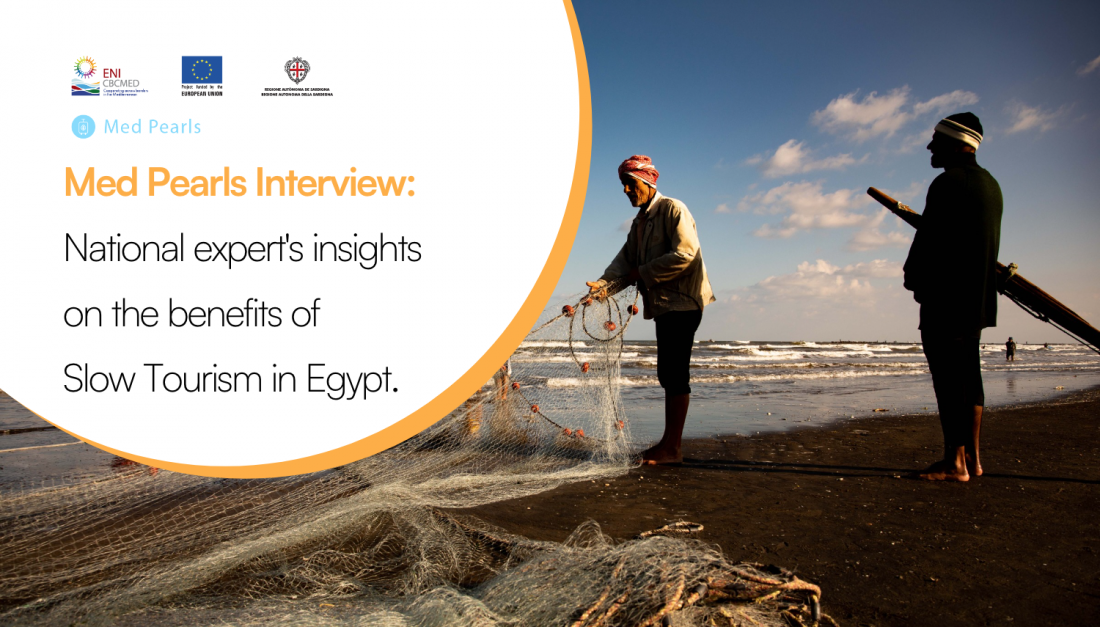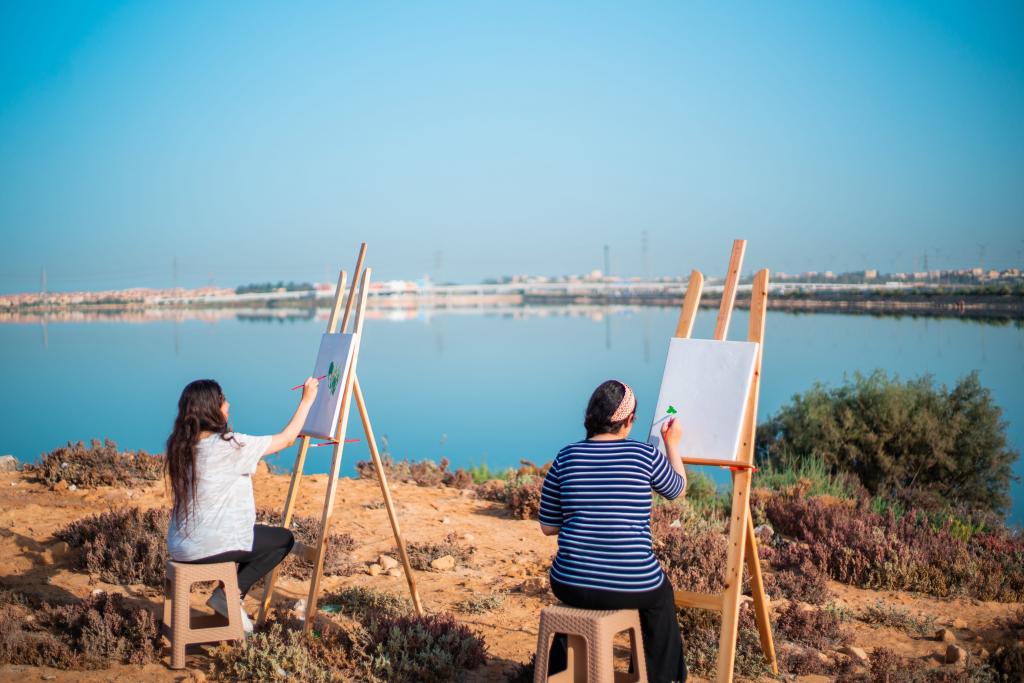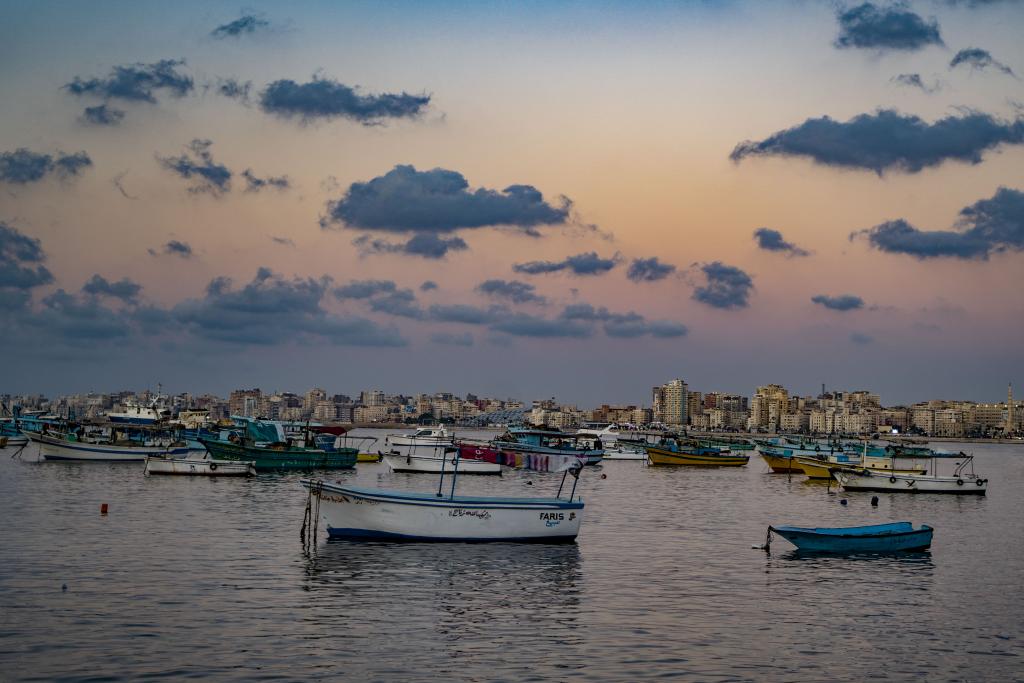Med Pearls interview: National expert's insights on the benefits of Slow Tourism for Egypt.

Slow tourism is a travel philosophy that focuses on experiencing a destination in a more authentic and sustainable way. It involves taking the time to truly get to know a place and its culture, rather than just ticking off a list of tourist attractions. The EU-funded Med Pearls project is dedicated to promoting slow tourism in the Mediterranean region together with a network of small and medium-sized enterprises (SMEs) in the tourism sector, with the goal of promoting sustainable and authentic tourism experiences in the region.
We had the opportunity to speak with Mr. Karim El Minabawy, President of EMECO travel agency, former President of Euromic, the International Association for MICE DMCs and President Elect of the SITE (Society for Incentive Travel Excellence) about the Med Pearls project and its efforts to promote slow tourism in Egypt, in light of the remarkable efforts made by the project team to support local travel agencies through EU-funded grants to develop slow tourism packages. As a national expert and mentor in the Med Pearls project, Mr. El Minabawy has been at the forefront of helping the project in promoting sustainable and authentic tourism in Egypt. In this interview, Mr. El Minabawy will share his insights on the benefits of slow tourism, the challenges facing the tourism industry in terms of sustainability and authenticity, and how the Med Pearls project has supported the development of local communities in Egypt, as well as discuss the future of tourism in the region and how projects like Med Pearls can play a role in shaping that future.
Could you please tell us more about the role you play within the framework of the Med Pearls project?
“I was honoured to be appointed for such an important task that would not only introduce the Slow Tourism segment into the Egypt tourist map but most importantly add new destinations that have never been previously considered nor promoted in the country.
In this respect, I have worked closely with the selected sub-grantees to sort out the attractions that could be considered when planning their programs. This includes finding the most sustainable means of transportation to reach those attractions whenever possible and providing it in a safe environment. I have then worked closely with them to put together the programs in a way that meets the slow tourism criteria. A range of different interests has also been considered, varying between culinary, spiritual, religious, architecture, bird watching, and photography, to name just a few of the different interests that have been considered.”

How does the Med Pearls project support the development of sustainable tourism packages, local communities, and involves local people in the tourism industry in Egypt?
“In fact, Slow Tourism is about all that. Visitors of this segment of tourism are only interested in exploring and experiencing non-traditional services catered by local communities that are not used to serving tourists. Due to their interest and appreciation of the local communities, Slow Tourism travellers want to explore this part of the destination without abusing and/or affecting the community & their environment negatively. Thus, the use of sustainable & green services such as transportation, tools used while preparing the food, accommodation amenities, etc. is of great importance to those tourists.”
Can you provide some examples of the unique cultural and natural heritage that the Med Pearls project aims to highlight and promote to travellers visiting Egypt?
“The programs designed by the sub-grantees offer a diverse range of experiences, such as:
- the fishermen's life at Mariout Lake, the Bedouin culinary traditions, the architectural beauty of Saint Simon monastery, and its bird-watching opportunities.
- The unique blend of the Ottoman, European & Egyptian architecture, may sound like an ugly combination but ends up being a truly exceptional beauty one can only contemplate in downtown Alexandria.
- The spot where the one and only Rosetta stone, which helped the Egyptologists decode the secrets of the pharaonic era, was found.
- Edku Lake and its natural beauty along with its distinct community differs from all other Egyptian ones.
- The many galleries & museums in the Bibliotheca of Alexandria, which is just a small part of the classical tour offered by the library.
These are just a few of the many offerings of the sub-grantee programs.”
How can travellers get involved in the Med Pearls project and learn more about slow tourism in the Mediterranean region?
“Thanks to the Med Pearls investments, I truly believe that after the research made by the sub-grantees to set and put together the itineraries that explore all this unique beauty of the Mediterranean, it is time to make this beauty available to interested tourists. This will be made possible by marketing the programs through different promotional channels such as social media, specialised trade shows & websites. It is also time to organise familiarisation trips to host the major Tour Operators as well as the specialised media and bloggers who will help spread the word among interested travellers. This is in terms of promoting the slow tourism segment in general as well as the beauty of the slow tourism sites and activities in the Mediterranean.”
In your opinion, what are some of the biggest challenges facing the tourism industry in terms of sustainability and authenticity in Egypt?
“The lack of sustainability culture, education, and practice is the major challenge that affects negatively the Egyptian tourism. This is actually topped by the lack of available investment that can help the stakeholders replace their current assets with sustainable ones. Although the latter will help save costs in the long term, consequently helping increase their profit. However, initiating the original investment that can help such a replacement is another challenge for those who understand its importance.”

Can you share any success stories or examples of how Med Pearls’ efforts to promote sustainable tourism have had a positive impact on the local community and the involved SMEs?
“The perfect example is the number of locals who have been contracted to help serve the slow tourism travellers when visiting. This will assist the housewives who will share their culinary experience to generate some additional income for their families as well as assist the fishermen in producing extra income by escorting travellers to explore their daily activities. Additionally, a couple of CSR (Corporate Social Responsibility) activities that the designed programs will make available.
In addition, the programs have also included many SMEs to extend their entities' services to international travellers rather than being limited to the locals. This additional segment of the business will also help those stakeholders to be obliged to upgrade their level of services and hygiene standards, to meet tourists’ expectations. This was made possible through the training that sub-grantees have received and that still will be extended beyond the scope of the project.”
How do you see the future of tourism in the Mediterranean region, and what role do you think projects like Med Pearls and the principles of slow tourism can play in shaping that future?
“The Mediterranean region is one of the most developed and visited spots in the world in terms of traditional and historical touring. Failure to develop additional segments such as Slow Tourism will not motivate previous visitors to the region to return. If they do, they will need to find different interests such as getting deeper into the communities’ lives and exploring the authentic culture rather than the modernism provided by international chains and the regular tours they previously enjoyed in their first visit. The Med Pearls project is simply helping to develop the same as well as highlight the unparalleled beauty and the many authentic communities that the Mediterranean region owns.
There is no doubt that the demand for these types of experiences is on the rise with many travellers seeking to explore the culture of their favourite destinations from previous trips in greater depth.”
In conclusion, it is evident that the EU-funded Med Pearls project has been instrumental in promoting slow tourism in Egypt and supporting the development of sustainable tourism in the region. Through its efforts to highlight the unique cultural and natural heritage of the area, support local SMEs and sustainable tourism initiatives, the project has helped ensure that tourism has a positive impact on the local community and environment. We are grateful to Mr. Karim El Minabawy for his participation in the Med Pearls project and commitment to sustainable and slow tourism in Egypt. His efforts serve as an inspiration to the tourism industry and demonstrate the positive impact that responsible tourism can have on the world.
Check regularly: www.enicbcmed.eu/projects/med-pearls
And our social media:
@MedPearlsProj - Med Pearls Project (Facebook) - medpearlsproject (Instagram)









